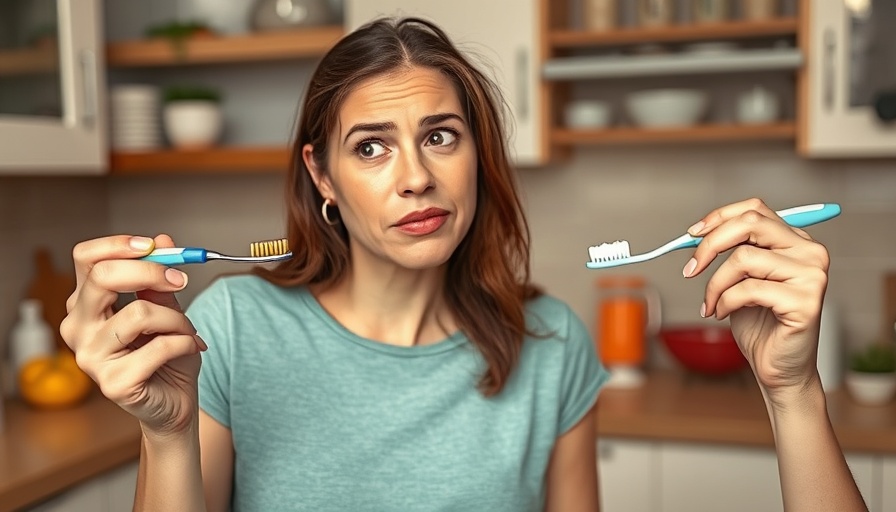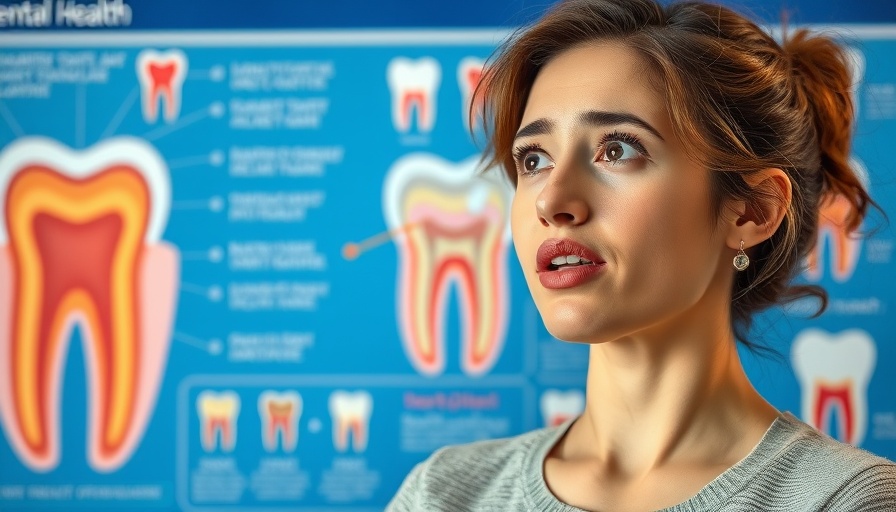
Understanding Oil Pulling: What Is It?
Oil pulling is an ancient practice rooted in Ayurvedic medicine, which involves swishing oil (commonly coconut oil) in your mouth for 15 to 30 minutes, then spitting it out. Advocates claim various health benefits, but how does it stack up against regular oral hygiene practices? With studies suggesting some possible benefits like reduced bacteria and fresher breath, the question remains: Can oil pulling replace brushing your teeth?
In 'Can Oil Pulling Replace Brushing Teeth? Here's What the Science Says', the discussion dives into the efficacy of oil pulling, exploring key insights that sparked deeper analysis on our end.
The Evidence: What Science Says
The consensus in dental health research is clear: oil pulling should not replace traditional brushing and flossing. Whitney, a registered dental hygienist, emphasizes that while small studies show it may help reduce bacteria and alleviate dry mouth, there is no solid evidence supporting its efficacy in preventing cavities or gum disease like brushing does. The reality is, brushing your teeth for two minutes, twice a day, remains an evidence-based requirement for maintaining oral health.
Why Can't Oil Pulling Replace Brushing?
Brushing and flossing are essential for effective plaque removal, a task that oil pulling isn't designed to do. Those dedicated to oil pulling should be equally committed to a good brushing routine. Whitney mentions that studies demonstrating benefits from oil pulling generally advocate for a swishing duration of about 20 minutes, which is significantly longer than the two minutes recommended for brushing. Thus, if you can devote about 20 minutes swishing oil, it’s likely you can commit to brushing, too.
The Risks of Oil Pulling
Engaging in oil pulling isn’t without its risks. Whitney highlights three critical concerns: aspiration risk (which could lead to lipoid pneumonia), jaw strain from extended swishing, and plumbing issues if the oil is disposed of in the sink. If you're considering incorporating this regimen, it’s essential to be aware of these potential drawbacks while prioritizing safe practices.
Balancing Your Oral Hygiene Routine
About 40% of Americans fail to brush their teeth twice daily, making it imperative to prioritize these basics before introducing new practices like oil pulling. Whitney's perspective is crucial: while there could be some benefits, they should not take precedence over brushing and flossing, which are backed by significant research. The idea is to keep your oral health approach comprehensive: brush properly, floss daily, and if you wish, try oil pulling as a supplementary routine.
The Rise of Anecdotal Evidence in Dentistry
It’s important to separate anecdotal claims, which flood social media, from evidence-based practices. Many individuals might credit oil pulling for improvements in their oral health due to a variety of factors unrelated to the practice itself. Whitney cautions against taking anecdotal evidence at face value, reiterating that healthcare recommendations must rely on peer-reviewed research.
Finding Your Unique Oral Health Balance
If you enjoy oil pulling, there's no harm in adding it to your routine, provided it complements good dental habits like regular brushing. Whitney offers a free oral care guide that helps build personalized dental routines, catering to your specific oral health needs. Taking that personalized approach can help maximize the efficiency of your daily dental hygiene practice.
Conclusion: Prioritize Proven Dental Practices
While oil pulling may offer some benefits, it should not replace the fundamental techniques of brushing and flossing. Engaging with your oral health through tried-and-true practices gives you the best chance of preventing dental issues and maintaining a healthy smile. Always listen to the evidence and ensure your routine is grounded on what truly works for your health.
 Add Row
Add Row  Add
Add 




Write A Comment